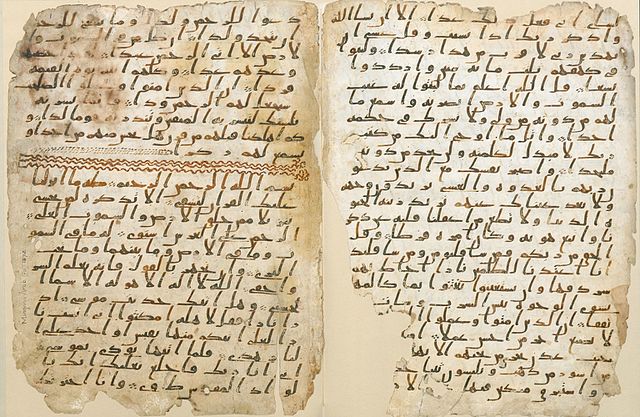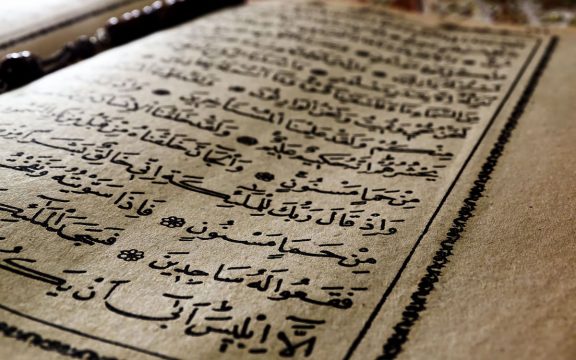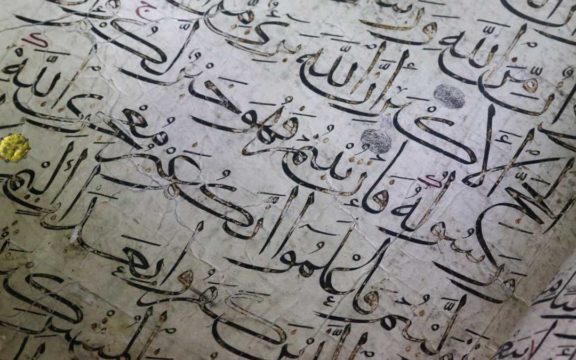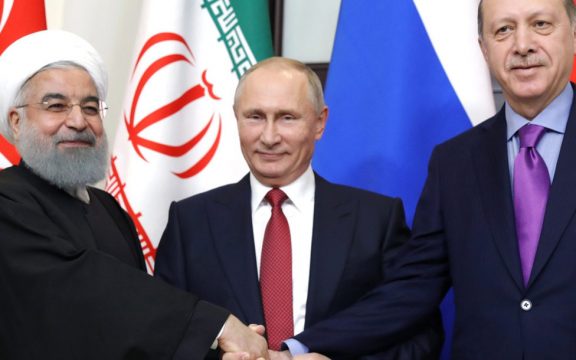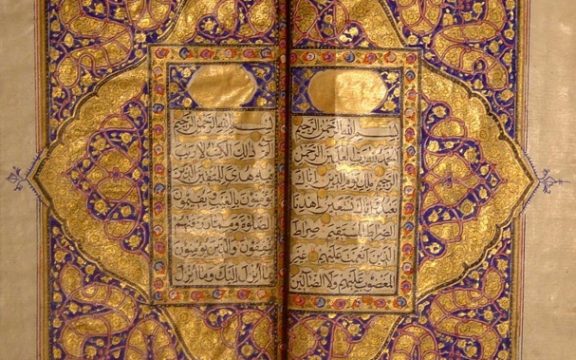Currently there is a lot of confusion among people regarding the use of terms khalifah, khilafah, and also khalifatullah fil-ardh. Such terms are oftenly used among proponents of Khilafah establishment, while opposing the existing nation-state system. I need to emphasize that:
- There is no term khilafah in the Qur’an
- There is no term khalifatullah fil-ardh in the Qur’an
- The Qur’an only uses the term khalifah twice, which is intended for the Prophet Adam and the Prophet Dawud.
Let’s have a look at the following discussion:
The use of terminology or term khalifah was only mentioned twice in the Qur’an. First, in the Qur’an 2:30 :
“And [mention, O Muhammad], when your Lord said to the angels, “Indeed, I will make upon the earth a khalifah.”
The context of this verse concerns the creation of the Prophet Adam. This means that Allah has chosen Prophet Adam and his descendants as the manager of the earth. The use of the term Khalifah here applies to every child of Adam.
“Indeed, we offered the Trust to the heavens and the earth and the mountains, and they declined to bear it and feared it; but man [undertook to] bear it..” (Qur’an 33:72)
“And We have certainly honored the children of Adam and carried them on the land and sea and provided for them of the good things and preferred them over much of what We have created, with [definite] preference..” (Qur’an 17:70)
“And We have already written in the book [of Zabur] after the [previous] mention that the land [earth] is inherited by My righteous servants..” (Qur’an 21:105)
The hadith of the Prophet SAW also revealed the potential of all humans to become a Khalifah:
“Every one of you is a leader, and each of you will be held accountable. Then a priest is a leader and will be held accountable. A man is the leader of his family and he will be held accountable. A woman is the leader of her husband’s house, and she will be held accountable. And a slave is also the leader of his master’s property and he will also be held accountable. Really every one of you is a leader and each of you will be held accountable” (Hadith narrated by Bukhari)
Secondly, the last verse that mentions the term khalifah which relates to Prophet Daud:
[We said], “O Dawud, indeed We have made you a khalifah (ruler) upon the earth, so judge between the people in truth and do not follow [your own] desire, as it will lead you astray from the way of Allah..” (Qur’an 38:26)
To keep in mind that the Prophet Dawud was the King of Israel. The verse above addressed to Prophet Dawud to enforce justice in his decision. This is the spirit of the Qur’an: justice. So that the mandate of being a khalifah (leader) must be within the principle of justice . The Qur’an mentioned the word justice 28 times.
At this point, not a single verse in the Qur’an speaks of a governing system. Of course this is understandable since there is a great distance between the Prophet Adam and the Prophet Dawud in the presence of the Prophet Muhammad. The term khalifah in the context of leadership of Muslim community after the death of the Prophet Muhammad appeared after he died.
The leadership title of Abu Bakr was Khalifah (successor) of Rasul. Because there was no more prophet after the Prophet Muhammad, then Abu Bakr replaced him in the capacity as leader of the people, instead of prophetic mission.
According to Ibn Khaldun in his book, Muqaddimah, the title for Umar ibn Khattab was the Khalifatu Khalifatir-Rasul (The succesor of the successor of Rasul). This might be like the expression of a joke from a Madurese in Indonesia, “The Governor of East Java is only Mr. Mohammad Noer, other than him, is just a successor”. So, Umar was only considered as the Khalifah (successor) of the Khalifah (successor) of Rasul. But the title would complicate the third and fourth coming Khalifah. How they would be named then?
Abdullah ibn Jahsy then called Umar ibn Khattab as Amir al-Mu’minin. The title of khalifah was still used, but in practical level, the Muslim community of the second, third and fourth khalifahs called them Amir al-Mu’minin (leader of the believers).
The Umayyads continued this tradition. After the Umayyads fell, a new term emerged during the time of the third Abbasid khalifah, named Al-Mahdi. In the time of Al-Mahdi, the khalifah’s title slowly shifted, from khalifah as the successor of Rasul, to becoming Khalifatullah fil-ardh. Meaning Allah’s khalifah on the earth, as if becoming the shadow of God on the earth. So, slowly Khalifah Al-Mahdi sat behind the curtain and a number of important affairs of the government were handed over to the wazir/vizier (prime minister).
The term khalifatullah fil-ardh is not mentioned in the Qur’an. What’s mentioned in the Qur’an is the term “khalaif al-ardh” or “khalaif fil ardh”. For example:
“And it is He who has made you khalaif al-ardh (successors upon the earth) and has raised some of you above others in degrees [of rank] that He may try you through what He has given you..” (Qur’an 6: 165)
“Then We made you khalaif fil-ardh (successors in the earth) after them so that We may observe how you will do.” (Qur’an 10:14)
So, once again it is clear that the use of the word khalifah in the Qur’an refers to the Prophet Adam and Prophet Dawud, instead of referring to the khalifah after the death of the Prophet Muhammad. The term Khilafah was nowhere found in the Qur’an. So we should not claim a term as if it were in the Qur’an when it wasn’t there at all. Similarly, the term Khalifatullah fil-ardh, whose use was very political since carried out by the Abbasids to strengthen the legitimacy of their power.
So what is the difference between khalifah and khilafah? The term Khilafah has recently become a defining term of a governmental system. This Khilafah government has collapsed since 1924. So it is right if we say “Islam Yes, Khilafah No”. Not only did we say ‘No’ since it had collapsed and was replaced by the nation-state, but also the term khilafah itself was nowhere in the Qur’an. The term does not exist, let alone the explanation of basic form of governmental system in the Qur’an.
Can we become a khalifah without khilafah? Yes we can. Why not? Aren’t we all, the children of Adam, the heir and ruler of the earth? This is the khalifah that was meant by Qur’an, apparently not under definition of Hizbut-Tahrir style khilafah system.
Can we now call a khalifah despite the absence of khilafah? Yes, why not? Didn’t the Prophet Dawud become a khalifah though he was the King of Israel? The keyword, as explained above, is justice. For any just leader, we can think of as a khalifah like the Prophet Dawud.
Can there be a khalifah without khilafah? Yes, why not? The Umayyads, Abbasids and Ottomans were based on the kingdom, inherit the leader from generation to generation. This is contrary to the concept run by Khulafa ar-Rashidin. But after all, their leaders is titled as the Khalifah. At this point, the title means only for the head of state, while the substance gone already.
So, do not confuse the term khalifah in the Qur’an with the term khilafah (government system) which is found nowhere in the Qur’an.
What about the discussion of Fiqh? The discussion in the book of Fiqh implies the context of obligating Muslims to appoint a leader (either Imam or Khalifah). Not the obligation to uphold Khilafah as a system. Up to this point, the confusion has been getting worse: as if Muslim is obliged to establish a Khilafah system. Even though the obligatory one is to choose the leader.
And finally, we already have a president named Joko Widodo in Indonesia. Soon we will hold a five-year Presidential Election, something that will never exist in the Khilafah government system. We are grateful that we live under the Republic of Indonesia.
Nadirsyah Hosen
General Advisor of Nahdlatul Ulama Special Branch of Australia-New Zealand and Senior Lecturer of Monash Law School, Australia
Translated from Indonesian version of the article at Islami.co.
![Islami[dot]co](https://en.islami.co/wp-content/themes/jambualas/images/logo.png)

